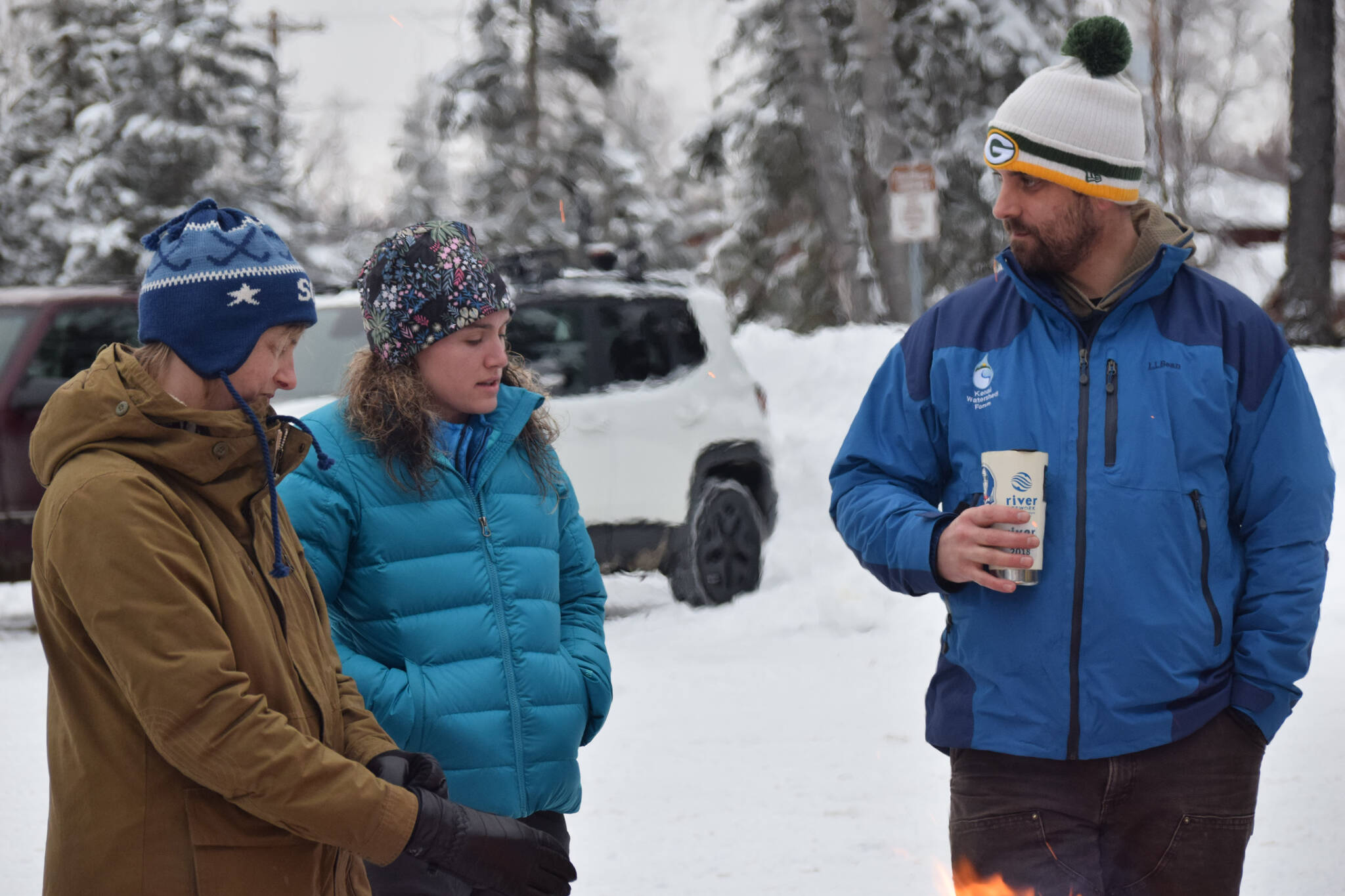Gathered around a bonfire with cookies and cocoa Thursday, several dozen people — staff, volunteers and members of the public — celebrated the Kenai Watershed Forum’s 25th anniversary and reflected on the work the nonprofit has done to protect the watershed over the last quarter century.
Branden Bornemann, the executive director of the forum, said Thursday that he was proud of forum’s accomplishments.
“I think now more than ever it’s important that we still have a voice for this river,” he said. “We still have a place that people can come to that’s nonpartisan, that’s not interested in politics or fish allocation and really just focused on making sure that this river and the watersheds that need it are here for many generations beyond our work (and) our 25-year history.”
Originally from North Dakota, Bornemann said he one day decided to pack up and move north. In 2009, he was hired to do research for a different agency in Moose Pass and was immediately drawn to the peninsula. He came back to work for the watershed forum in 2011 and took over as the executive director in 2018.
“The organization was incredibly well-respected,” Bornemann said. “(I was) very attracted to that history and that, kind of, influence in the community.”
The forum was founded in the early 1990s by Ken and Judy Marlow, who were living along the Kenai River and concerned about development happening across the water from their home, Bornemann said. The couple wanted to make sure the project was completed responsibly, with the health of the watershed and aquatic life at the forefront.
“(They) found a lot of like voices and friends of theirs that felt the same way, started having meetings in (their) living room, and so the watershed forum was born,” Bornemann said.
The nonprofit covers around 25,000 square miles on the Kenai Peninsula, which has long been the homelands of the Kenaitze Dena’ina and Sugpiaq Alutiiq peoples. The area encompasses 14 major watersheds, over 20,000 miles of stream habitat and more than 350,000 acres of wetland habitat, according to the organization’s website.
Bornemann said one of the most important pillars of the forum is educational programming.
“It’s important to educate,” he said. “If you don’t understand the resource you’re being asked to protect, then you’re not feeling like you’re part of the process, it’s not fair to ask you to protect it.”
Megan Pike, education specialist at forum, said Thursday that the effect the nonprofit has had on the community is palpable.
“It’s pretty amazing to only have been here for a minute in time, but be able to feel this reverberation of what KWF education has done in the community,” she said.
Pike has held her position for about four years — with the last two seasons impacted by the COVID-19 pandemic. She said assessing the progress of the forum so far has made her want to continue for another 25 years.
“It’s been a really big privilege to see it in its infancy,” Pike said.
One of the major projects she oversees is the adopt-a-stream initiative, which teaches kids about salmon life cycles, water quality and invasive species both in the classroom and along the watershed. The program is run in tandem with the Kenai Peninsula Borough School District.
In addition to educational programming, the forum has also hosted environmental film festivals, comedy roasts and athletic events, and last summer the nonprofit was awarded almost $100,000 in federal funding for water quality sampling in the Kenai River.
At the 25th anniversary celebration, Bornemann expressed his appreciation for the original founders of the organization, and the imprint they’ve left on the Kenai Peninsula.
“I think the vision and the mission they had — I just want them to know that there’s people today that carry that torch,” he said. “We care the same way they care.”
Reach reporter Camille Botello at camille.botello@peninsulaclarion.com.

